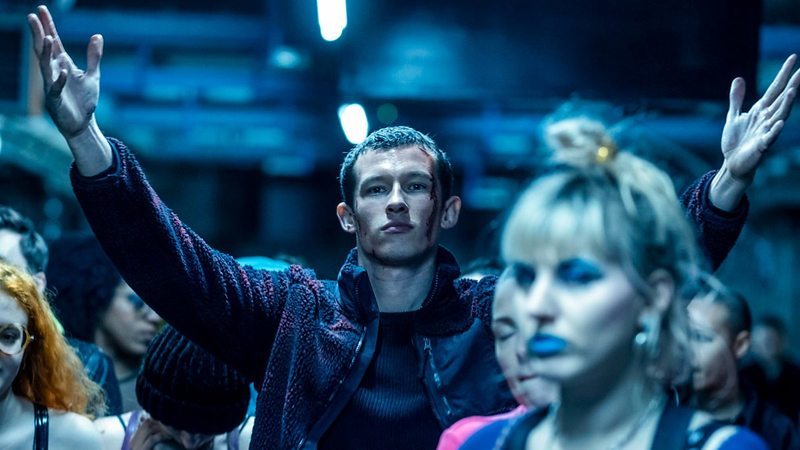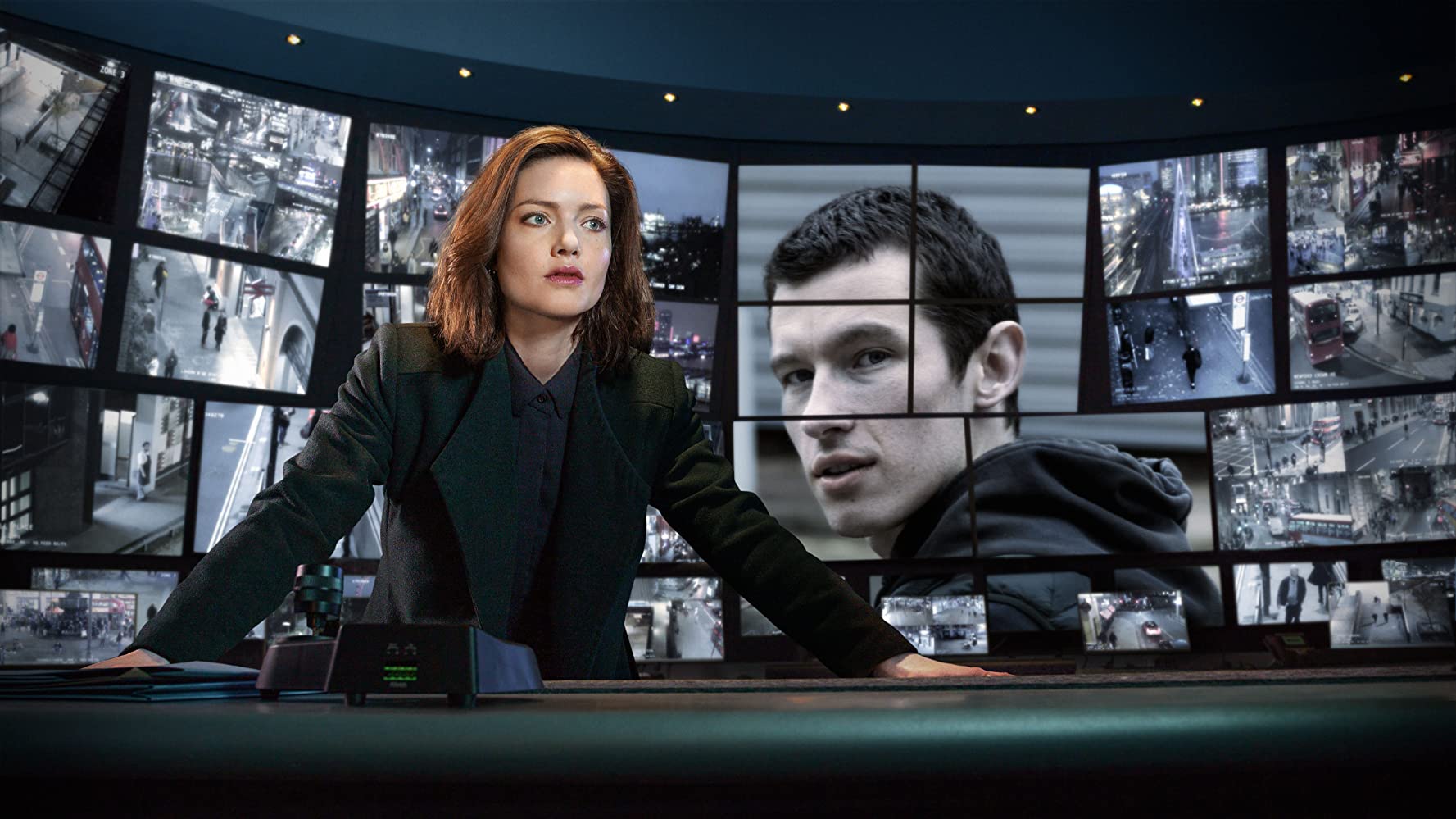A loud green and purple banner with the acronym CCTV (Caring for the Community Through Vigilance) first catches viewers’ eyes before the camera pans down to a soldier and a woman in a trench coat, walking down the street together. Monitoring them are a trio of CCTV specialists who watch as a heartwarming scene deteriorates into a heinous crime. Over the course of six hour-long episodes, writer/director Ben Chanan’s “The Capture” uses inspiration from “Minority Report” for his gripping and evocative crime thriller.
The series opens with British soldier named Shawn Michael Emery (played by Callum Turner) standing trial for the murder of an unarmed, gravely wounded Afghan man who Shawn claims was an armed Taliban insurgent. With the help of his barrister, Hannah Roberts (Laura Haddock), Shawn is exonerated after she proves the incriminating footage depicting the murder as faulty—the sound and video were out of sync. The footage is the first salvo that Chanan’s writing fires at the veracity of the moving image, making for the show’s central theme. Later, while out celebrating his newfound freedom, Shawn is caught on CCTV footage assaulting, and possibly murdering Roberts. Arrested by a rising-star DI, the whip-smart Rachel Carey (Holliday Grainger), and accused of murder, Shawn violently denounces the footage’s accuracy. What at first seems like an open-and-shut case soon evolves into a twisty exploration of PTSD and surveillance-state malfeasance.
During this winding pursuit of the truth, Carey is surrounded by shadowy figures: her already-married lover Commander Danny Hart (Ben Miles), warns Carey against looking too deep; DSU Gemma Garland (Lia Williams, displaying big Emma Thompson energy) alters her against crossing boundaries, and undermines her investigation at every turn. There are also secret American operatives in safe houses, (one played by Ron Perlman), and gung-ho activists, too.

Confusing matters for all involved is Shawn’s less than squeaky reputation. Described by his ex-girlfriend as difficult, angry, insecure, jealous, and drunk, Carey initially believes Shawn might suffer from PTSD. Turner provides an inspired, provocative performance, especially when he portrays Shawn witnessing the footage of him attacking Roberts, or of his friend being tortured. There’s never a moment when the camera’s energy, especially in the series’ abundant use of handheld shots, isn’t completely conquered by his arresting scowl and heavy saunter. Conversely, Grainger offers a steady nerve to Turner’s chaotic swings. As Carey, a detective who evolved from the surveillance sector to detective work, she tactically performs the crumbling of a once-confident, ambitious woman into a cop questioning the circumstances of her rise, and the truths she’s built her career around. Grainger gives a quiet harrowing turn in every episode.
In her investigation, Carey ultimately stumbles upon the covert intelligence practice of “correction,” which allows for manipulation of live CCTV feeds to frame and convict suspects. The practice feels ripped out of Steven Spielberg’s “Minority Report,” in which Tom Cruise’s character arrests subjects based on the crimes they will commit in the future, until he himself is framed by the same technology. The theme opens questions surrounding digital face-mapping techniques and the surveillance state. In tightly edited sequences, Chanan portrays much of the action by way of characters watching screens from security cams. Every time a character enters the screen-laden room of Counter Terrorism Command, and watches with lighting speed how available street cams track suspects and spit out facial searches of their identity, a flash of awe and terror races across their faces. It’s partly the realization that they’re never truly alone, but also of how dependent their work is on such morally questionable techniques. “The Capture” may be a suspenseful cop drama, but the writing never lionizes the detectives, or those who most use the technology.
And while “The Capture”—which unpacks the mystery of a woman as an assault victim—plays into the fantasy of every abuser who believed their incriminating footage was doctored, Chanan narrowly avoids such unsettling pitfalls by ending on a note of poetic justice. You’ll never look at a street cam the same way again.
Whole season screened for review. “The Capture” premieres Wednesday, July 15th on Peacock.












